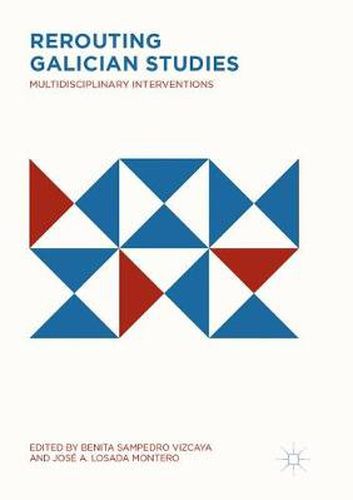Readings Newsletter
Become a Readings Member to make your shopping experience even easier.
Sign in or sign up for free!
You’re not far away from qualifying for FREE standard shipping within Australia
You’ve qualified for FREE standard shipping within Australia
The cart is loading…






This book-aimed at both the general reader and the specialist-offers a transatlantic, transnational, and multidisciplinary cartography of the rapidly expanding intellectual field of Galician Studies. In the twenty-one essays that comprise the volume, leading scholars based in the United States, Canada, the United Kingdom, and New Zealand engage with this field from the perspectives of queer theory, Atlantic and diasporic thought, political ecology, hydropoetics, theories of space, trauma and memory studies, exile, national/postnational approaches, linguistic ideologies, ethnographic poetry and photography, Galician language in the US academic curriculum, the politics of children’s books, film and visual studies, the interrelation of painting and literature, and material culture. Structured around five organizational categories (Frames, Routes, Readings, Teachings, and Visualities), and adopting a pluricentric view of Galicia as an analytical subject of study, the book brings cutting-edge debates in Galician Studies to a broad international readership.
$9.00 standard shipping within Australia
FREE standard shipping within Australia for orders over $100.00
Express & International shipping calculated at checkout
This book-aimed at both the general reader and the specialist-offers a transatlantic, transnational, and multidisciplinary cartography of the rapidly expanding intellectual field of Galician Studies. In the twenty-one essays that comprise the volume, leading scholars based in the United States, Canada, the United Kingdom, and New Zealand engage with this field from the perspectives of queer theory, Atlantic and diasporic thought, political ecology, hydropoetics, theories of space, trauma and memory studies, exile, national/postnational approaches, linguistic ideologies, ethnographic poetry and photography, Galician language in the US academic curriculum, the politics of children’s books, film and visual studies, the interrelation of painting and literature, and material culture. Structured around five organizational categories (Frames, Routes, Readings, Teachings, and Visualities), and adopting a pluricentric view of Galicia as an analytical subject of study, the book brings cutting-edge debates in Galician Studies to a broad international readership.